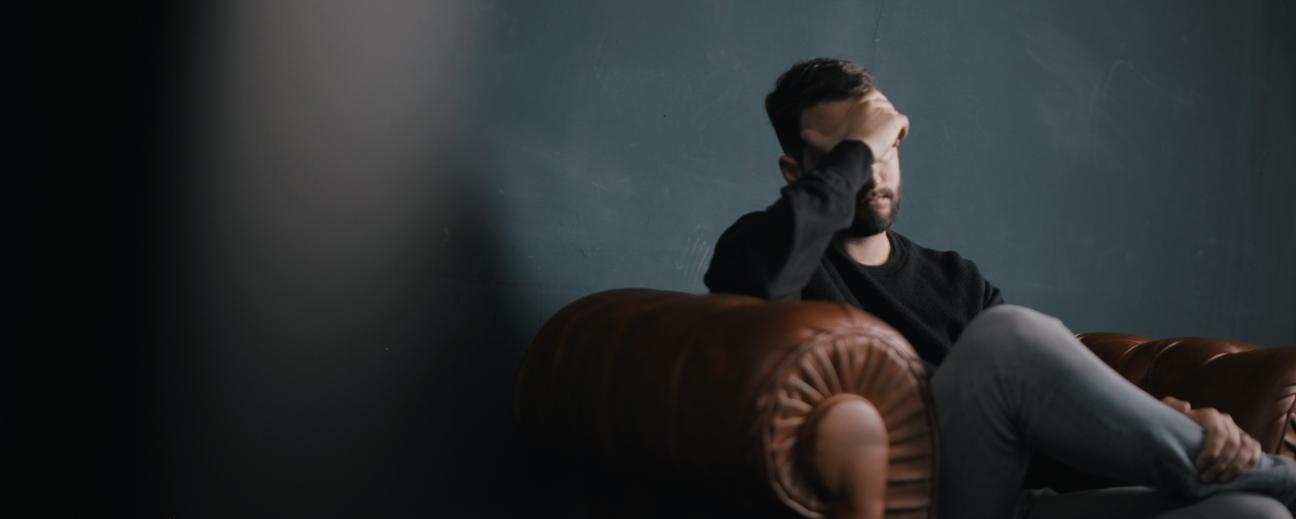Feeling sad or low after an upsetting or stressful event is normal. However, if these feelings do not go away, last several weeks or month, and do not improve even when good things happen then this may be depression.
Depression (also called major depressive disorder) is a common mental health condition characterised by ongoing sadness or low mood. A person with depression may lose interest in things they used to enjoy, have low energy, be irritable, and have difficulty concentrating. They may also experience changes in sleep, appetite and weight. These symptoms can have a negative impact on their relationships, performance at work/ school, and overall daily functioning. Depression can cause people to feel hopeless about the future, have low self-esteem, feel worthless or like they are a burden on others. These feelings can lead to thoughts of self-harm and suicide.
Depression is common and can affect anyone. The exact cause is unknown but there is a genetic component meaning it can be inherited. Other risk factors include experiencing a stressful or traumatic event and social isolation.
The good news is that depression is treatable. A mix of psychological therapy and medication can be effective for many who suffer from depression.
- Feeling sad
- Feeling low or hopeless
- Loss of interest in things you used to enjoy
- Difficulty concentrating
- Changes in sleep - sleeping too much or too little
- Changes in appetite - increase or decrease in appetite
- Changes in weight - losing or gaining weight
- Thoughts of harming yourself
- Thoughts of suicide or death
- Irritability
- Feelings of worthlessness or guilt
- Reduced sex drive
- Fatigue and low energy
- Restlessness
There are many effective treatments for depression. Depression is commonly treated with medication, psychological therapy, or a combination of these. The type of treatment will depend on the pattern and severity of depressive episodes and other individual factors.
Medication:
Antidepressants can be effective in the treatment of depression. Ideally these medications are used in combination with talk therapy. You may need to trial several types and different doses of medication with your doctor to find one that is effective for you.
Psychological Therapy:
Various forms of psychological therapy have been developed to treat depression. Cognitive behavioural therapy (CBT) is a structured form of talk therapy commonly used to treat depression. CBT combines cognitive and behaviour therapies to explore how our beliefs, thoughts, and actions impact each other. CBT is based on the idea that our feelings are influenced by our thoughts and behaviours. Your therapist will help you identify negative and maladaptive thoughts and beliefs and replace these with more adaptive positive ones, identify factors contributing to your depression, find coping strategies, change behaviour, and improve overall wellbeing and mood.
Other Treatments:
Other medical treatments have been approved to treat depression which does not improve in response to medication or psychological therapy, these include transcranial magnetic stimulation (TMS) and electroconvulsive therapy (ECT). TMS involves sending short magnetic pulses into brain areas involved in mood regulation in order to stimulate nerve cells. ECT involves passing electrical currents through the brain to impact brain function and neurotransmitter function.
Depression.org is part of the National Depression Initiative.
This website is full of ideas and stories to help people with depression and anxiety. It also includes tools for self-help as well as resources to help your family and friends who are struggling with depression.
It helps New Zealanders recognise and understand depression and anxiety, and seeks to reduce the impact depression and anxiety has on people by encouraging early recognition and help-seeking.
HelpGuide is an independent nonprofit organisation that runs one of the world’s top 10 mental health websites.
Over 50 million people from all around the world turn to HelpGuide each year for trustworthy content they can use to improve their mental health and make healthy changes.
This organisation covers many different mental health issues, including depression. Their aim is to help individuals learn about symptoms, treatment, and recovery as well as eliminating the stigma around mental health.
Depression in men has long been surrounded by strong stigma. Myths like “depression is a sign of weakness” and “feeling sad isn’t manly” can be debilitating thoughts that prevent men from seeking help.
HeadsUpGuys aims to destroy these myths and empower men with the tools they need to combat depression. On this blog, you’ll find posts from men of all walks of life, including professional athletes, on how they experience and deal with depression. Visitors will also find resources to take action and find help.
‘Beating the Blues’ is an online cognitive behavioural therapy (CBT) program for New Zealanders experiencing depression and/or anxiety. The program contains 8 weekly 50 minute sessions which can be completed at anytime. These session aim to help you better understand depression and anxiety, change negative thinking patterns, learn coping strategies, and improve your mental health.
Take a look at the website for more detailed information on the program.
This TED-Ed ‘What is depression?’ video provides an easy to understand overview of the symptoms of depression, treatment options, and how to help if someone you know is suffering with depression.
The Australian Centre for Clinical Intervention (CCI) has a collection of information sheets, worksheets, and self help resources for those experiencing depression. These aim to provide education on the condition and practical ways to manage it and improve wellbeing.
